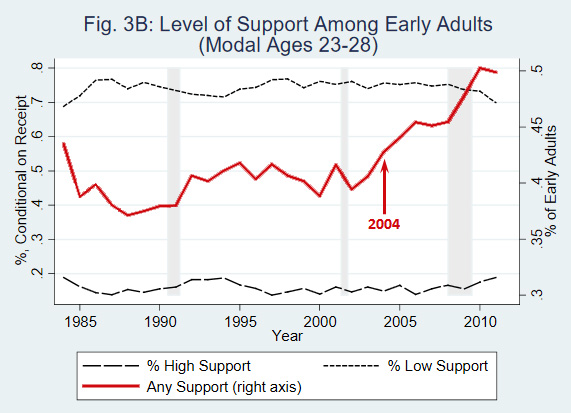Almost half of people in their early 20s have a secret, one they don’t usually share even with friends: Their parents help them pay the rent.
Moving into adulthood has never been easy, but America’s rapidly changing labor market is making it harder to find economic security at a young age….According to surveys that track young people through their first decade of adulthood, about 40 percent of 22-, 23- and 24-year-olds receive some financial assistance from their parents for living expenses. Among those who get help, the average amount is about $3,000 a year.
Earnings of young workers increased at the same rate as urban rents until the Great Recession. Since then, however, rents have outpaced earnings by about 8 percent. So it makes sense that parental help with rent has increased over the past decade.
But there’s an oddity here. Whenever I see an article like this, I always want to know “compared to what?” Has this really changed over time? Or have parents always helped their newly minted adult kids with the rent? So I clicked on the link to one of the studies mentioned in the article. Here’s the primary finding:

This is a measure of all parental support, not just rent, and it’s relatively stable until 2004, when it begins skyrocketing. So what happened? My first guess was that the housing bubble increased the cost of buying a house, which meant more 20-somethings were getting help from their parents with a down payment. But that would certainly count as “high support,” which didn’t increase. What’s more, one of the defining features of the housing bubble was home loans with tiny down payment requirements. So that’s probably not it.
The Great Recession makes sense as a starting point for increased parental assistance. But 2004? What happened then to kick off this trend?

















